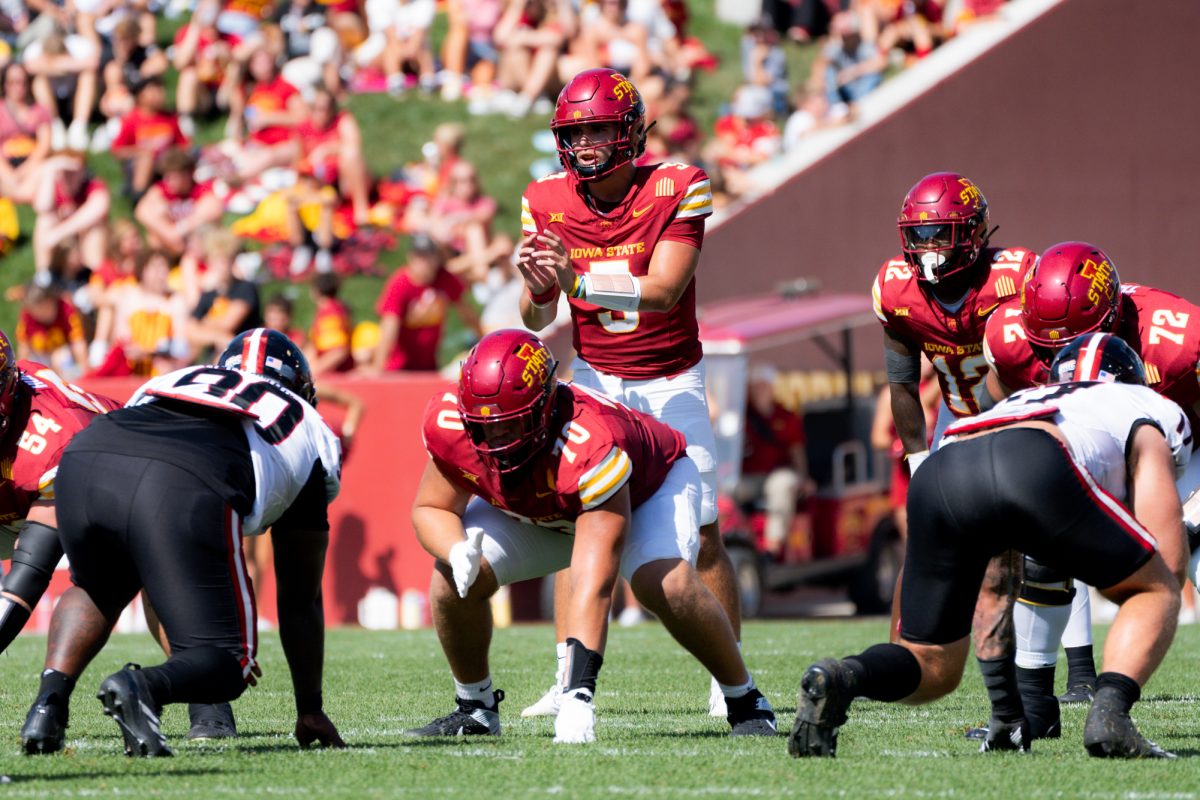The current NBA situation
October 21, 1998
Since the NBA has canceled the first two weeks of the regular season and possibly more, basketball fans everywhere have a sense of disappointment. How could basketball stoop to the same levels of the other major sports? Football, hockey and most recently baseball have experienced lockouts, but never basketball.
This ends a streak of 35,001 consecutive games over 52 seasons. But then again, who really cares?
Sure, it is exciting to see how this year’s rookies perform in their first game, but that anticipation can always wait a few weeks.
Basketball is one of the few sports that will not be hurt by a shortened season. The NBA consists of an 82 game schedule, so the absence of a few games should not affect playoff contenders like it would with football.
The NFL only has sixteen games, and during its strike season of 1987, replacement players were used for a few games. This really hurt a few teams when their replacements lost every game they played in.
Some people might think baseball would not be hurt by a two-week delay because they have a 162 game schedule.
Well, what if Mark McGwire would have ended up with 60 home runs in a shortened season? What if pitchers who had phenomenal seasons were denied the opportunity to become prestigious 20-game winners?
Baseball would definitely be affected by a shortened season, especially if it came at the end of the season like it did in 1994.
Basketball statistics are, for the most part, based solely on average. Everyone is concerned with Jordan’s points per game or how many rebounds Dennis Rodman is averaging.
Every true sports fan knew that the home run record was 61 in a season by Roger Maris before the baseball season even started. But what is the record for the most points in a season in the NBA? Does anyone really care?
As far as I’m concerned, the NBA doesn’t really start to get exciting until April when playoff time approaches. During the regular season, few players give 100 percent all of the time, and the pace of play is sometimes boring.
I would much rather watch 10 college players dive on the floor for a loose ball or complete an explosive fastbreak with a sweet dunk. They are not getting paid millions of dollars, so they play hard all of the time in hopes of getting more playing time.
The recent NBA lockout is simply a result of conflicts between owners and players. As usual, it all comes down to money — how much and what to do with it.
The owners want to remove the Larry Bird rule which allows teams to resign their own players at amounts that exceed the salary cap. The players have compromised by offering to pay a luxury tax when they sign for more than the salary cap.
I think this can all be resolved by having a hard cap that cannot be exceeded. It would have to be much larger than the current cap, but teams would not be allowed to overspend. This is also what the league proposed, but the players would not accept it.
However, the players union did propose to decrease the amount of money a free agent could sign for from 20 to 10 percent. This seems fairly reasonable, but how many professions even offer a 5 percent increase in salary every year?
The union also agreed to include marijuana on the banned substances list. It seems like it is up to the owners to end this lockout, but the players also have to bend a little more.
I think that the luxury tax imposed on players whose salaries exceed the cap should be redistributed to the low budget teams. Today it seems like the teams with the highest payrolls are the most successful.
Case in point — the Chicago Bulls, the New York Yankees and the Detroit Red Wings. These teams have the money to basically keep all of their superstars and still buy free agents that low budget teams can’t hang onto.
I think the reason players want such huge contracts is for the status. If they are getting paid more than some other player, then they must be better. Seriously, what does Jordan do with all that money?
The majority of professional athletes are overpaid, but should the proceeds that they bring in go to the owners? The owners could use the extra money to lower ticket prices, but teams continue to sellout year after year, so why should they lower ticket prices?
Basically, the fans are the ones getting hurt the most. Whenever a player signs a lucrative contract, it costs the owner. The owners, in turn, raise ticket prices and charge more for hot-dogs and beer to compensate for their losses.
Professional athletes are too consumed with themselves and don’t realize that their greed for money hurts the fans more than anyone.
Eric Taylor is a junior in mechanical engineering from Elysian, Minn.






